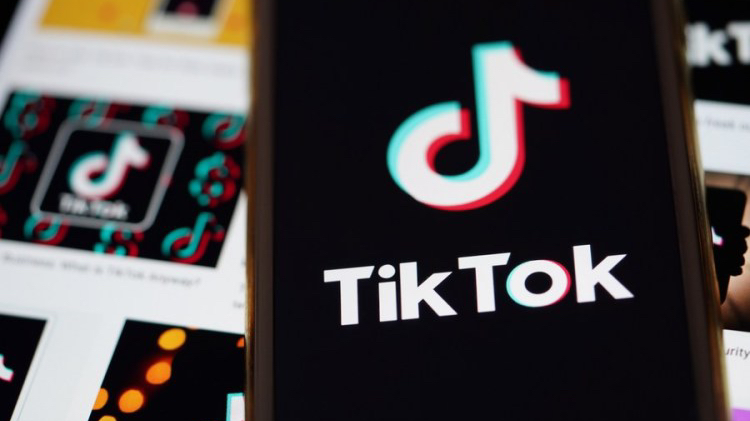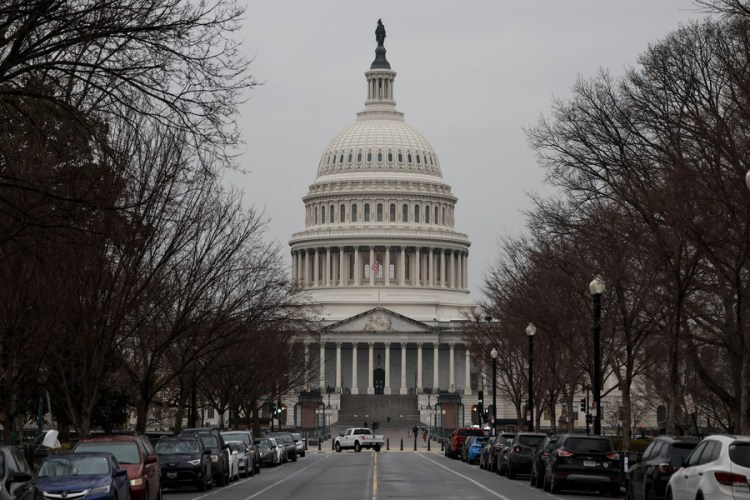
The logo of TikTok is seen on the screen of a smartphone in Arlington, Virginia, the United States, August 30, 2020. /Xinhua
The logo of TikTok is seen on the screen of a smartphone in Arlington, Virginia, the United States, August 30, 2020. /Xinhua
Editor's note: Anthony Moretti is an associate professor at the Department of Communication and Organizational Leadership at Robert Morris University. The article reflects the author's opinions and not necessarily those of CGTN.
America has lost all semblance of common sense when it comes to the popular social media app TikTok. The latest example comes from the U.S. state of Montana, where the legislature passed a bill that would ban the app in the state. If the governor signs the bill into law, companies that continue to allow TikTok to be downloaded would face substantial fines. For now, any private citizen who uses the app would not be penalized.
Montana has already banned the app on any phone owned by the state government or any device used by public universities in the state. Other states have done the same (and others are considering such moves), and the U.S. government has engaged in a highly public campaign to force the owners of the app to sell.
It is important to emphasize that the attempts to ban TikTok or pressure its Chinese owners into selling this platform contradict America's longstanding commitment to freedom of speech. And let's be clear that the paranoid fear of China that exists in the U.S. explains why TikTok is under scrutiny. An unsubstantiated fear of anything related to China is evident in many places in the U.S., and political figures at the national and state level know they can score political points by saying or doing anything that seems to hurt China.
These public figures either refuse to listen to (or simply do not care when) civil liberties organizations state loudly that the decisions made against TikTok are certain to be found unconstitutional. Meanwhile, and with justification, the Chinese government and TikTok's owners are promising strong legal cases to block any effort at disrupting operations.
The opponents of TikTok want you to believe that the app is vacuuming up every morsel of data it can about its users and then depositing everything it has into China, where that information will then be used to prepare pro-China or anti-West propaganda.
About a month ago, the CEO of TikTok, Shou Zi Chew, testified before a Congressional committee for nearly six hours, as members of the House Committee on Energy and Commerce peppered Shou with one question after another about the app and whether it runs afoul of U.S. national security concerns.

The U.S. Capitol building in Washington, D.C., the United States, January 19, 2023. /Xinhua
The U.S. Capitol building in Washington, D.C., the United States, January 19, 2023. /Xinhua
As the dust settles, it is becoming increasingly clear that those politicians played their roles well, as they sought to convince their constituents that TikTok is dangerous to America. Was there any substance behind what they did? It does not appear so. As the Washington Post noted when Mr. Shou addressed the committee, "To date, lawmakers have offered no evidence of TikTok harming U.S. national security interests."
Therein lies the rub with national security: It can be used in any circumstance and anytime a foe of the U.S. government is involved. Let's face it, a significant portion of Americans will believe, and without asking for proof, that TikTok is a threat to the country.
Meantime, no one in official Washington wants to look too closely at Facebook - another social media behemoth - and how it manipulates its algorithms because, well you know the answer, Facebook is an American company. Likewise, Google, known by friends and foes to collect copious amounts of data from people who use its products and apps, is allowed to carry on without anyone dropping those three words: national security threat.
And besides, no U.S. company would ever collect data and then provide it to the government, right?
Edward Snowden knows that answer. He demonstrated almost 10 years ago that U.S.-based telephone companies worked for hand in glove with the National Security Administration to ensure that what the BBC described as "tens of millions" of records pertaining to private citizens were made available for examination. It took seven years before a U.S. court stated the obvious fact. Quoting the Guardian: The court "has found the program was unlawful – and that the U.S. intelligence leaders who publicly defended it were not telling the truth."
In 2016, the FBI suggested that Snowden was to blame because those same companies were resisting efforts to again provide such information. Then in 2020, the U.S. Supreme Court offered its own criticism. In a 5-4 ruling, the Court affirmed that except in clear emergencies, the government had to obtain a warrant before gathering the telephone location data of private individuals.
In short, the U.S. government has broken the law, and it has been told to get its house in order. Now, it wants Americans to believe that China is a danger to the public even though there is no evidence to support such a contention.
(If you want to contribute and have specific expertise, please contact us at opinions@cgtn.com. Follow @thouse_opinions on Twitter to discover the latest commentaries in the CGTN Opinion Section.)